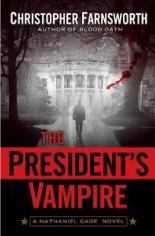Some random musings on a Sunday morning with coffee. Thinking about TV shows that succeed and those that don’t; wondering why.
I’m slightly surprised at how fast my prediction about The Playboy Club proved true. At the end of this article, one of the actresses on the show says The Playboy Club deserved more time because they had “best cast, best crew.”
Has anyone on earth ever watched a TV show and thought, “The characters are awful and every line is a cliche, but — I’m going to DVR and watch every episode because wow, what a crew!”Give people a character they love and the “great crew” will remain employed for years.This is the secret that gives otherwise “uncool” shows such as Matlock, Murder, She Wrote, and Monk such long legs. It looks to me like Castle is the example du juor, but time will tell.
For occasional and wanna-be producers like me, this is a cautionary reminder that a fact so basic and obvious can get completely buried in the complexities and politics of production. We’ll see several more Fall TV series collapse in the next few weeks because studios rely on bankable stars or trendy premises (hello, paranormal everything!), while forgetting: It all starts with the writing.
Speaking of premises, “trendy” can sometimes help, but your concept also needs your own fresh spin. Just as the success of Mad Men inspired the networks to try other 60’s-era dramas, the success of True Blood and The Walking Dead has triggered a fresh wave of paranormal dramas. Without having seen any of these coming shows, I can only assess them conceptually. On paper Grimm has a strong premise. It’s a police procedural — always popular, but as the waning of the franchise Law and Order shows, a stale genre, right? The hook is that one of the detectives descends from the Brothers Grimm, and thus can see into the world of monsters and fairy tales that the rest of us cannot. He uses this power to solve crimes, but has to be careful about it so that his “normie” co-workers don’t think he’s nuts. To me, that’s fresh: a tantalizing fusion of genres, with an engine for drama and conflict built right in.
Slipping genres a bit just to make my point — production-wise, Terra Nova is the most expensive episodic show to date. I’ve downloaded the pilot but haven’t watched it yet. Even sight unseen, the show’s fate radiates danger when no one I’ve talked to or read can articulate how it differs from the once-innovative, now-tired Jurassic Park.
Reminder to self: to succeed, fiction needs a likable but flawed protagonist, and a strong original premise. Without those as foundation, you can spend a ton of money, get the best special effects, or (more realistic for me and my readers) invest several years writing and rewriting and re-rewriting your novel…but a castle without a foundation will much sooner turn into rubble.
Anne Perry essentially invented her own genre. When she began pitching her first Inspector Pitt book in the 1970s, publisher after publisher rejected it. The conventional wisdom — proven wisdom, in the minds of booksellers — was that detective fiction readers hated period fiction, and period fiction readers hated crime stories. Her premise put a detective in Victorian London, aided by a smart woman in an era when women were to be seen more than heard. Once she sold her first novel in 1979, audiences gobbled it up. Her two related series have produced more than three dozen titles, spawned a host of imitators, and across the 1980s made “Victorian detectives” the trendy premise to copy.
Let’s you and I shoot for similar originality. I’m feeling less stupid about working on Hellephant! — at least the premise is not overdone! If I get my novel out in 2012, who knows? Maybe I’ll start a trend and 2013 will become “the year of hard-boiled men of action swapping bodies with animals.” (So likely.)






